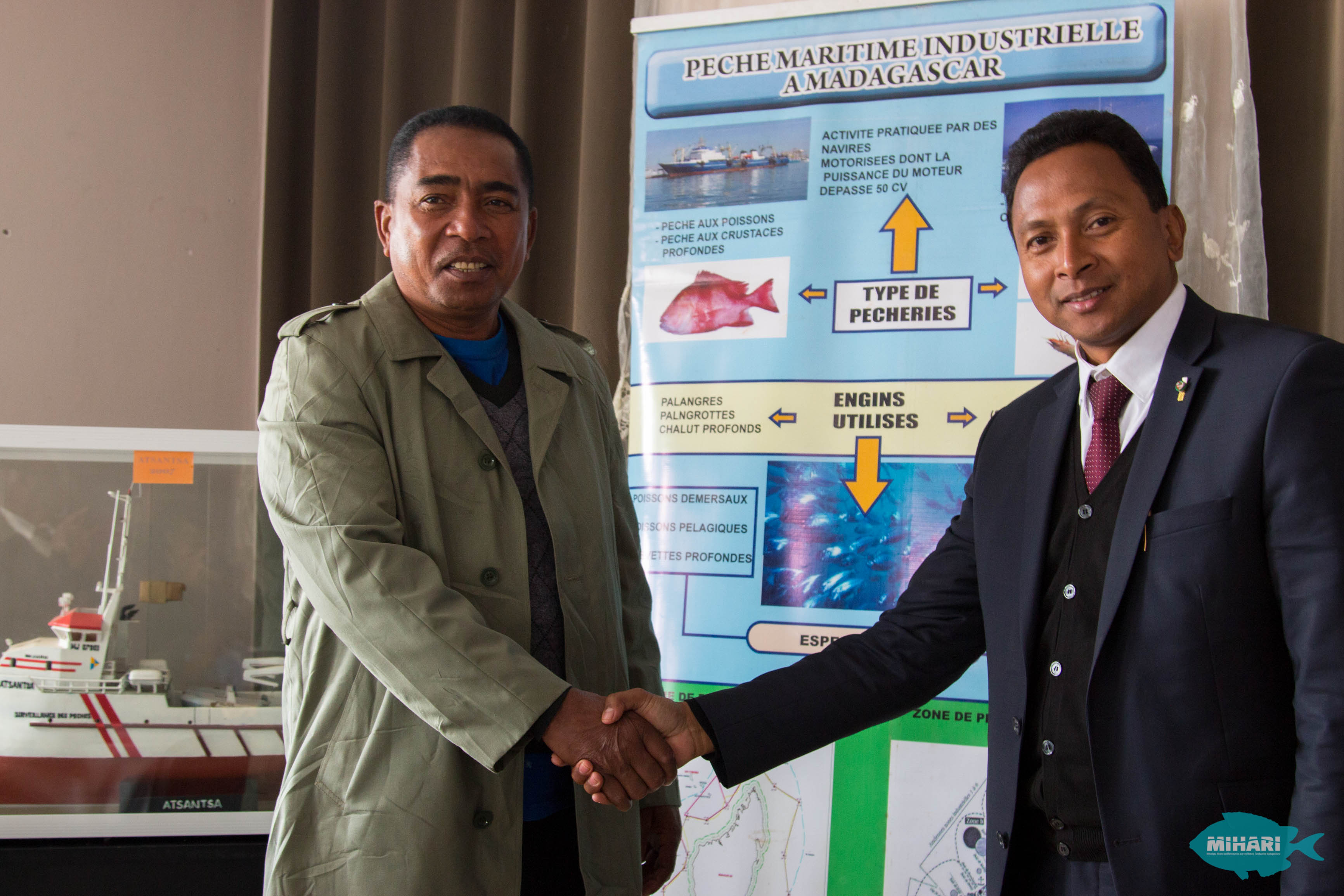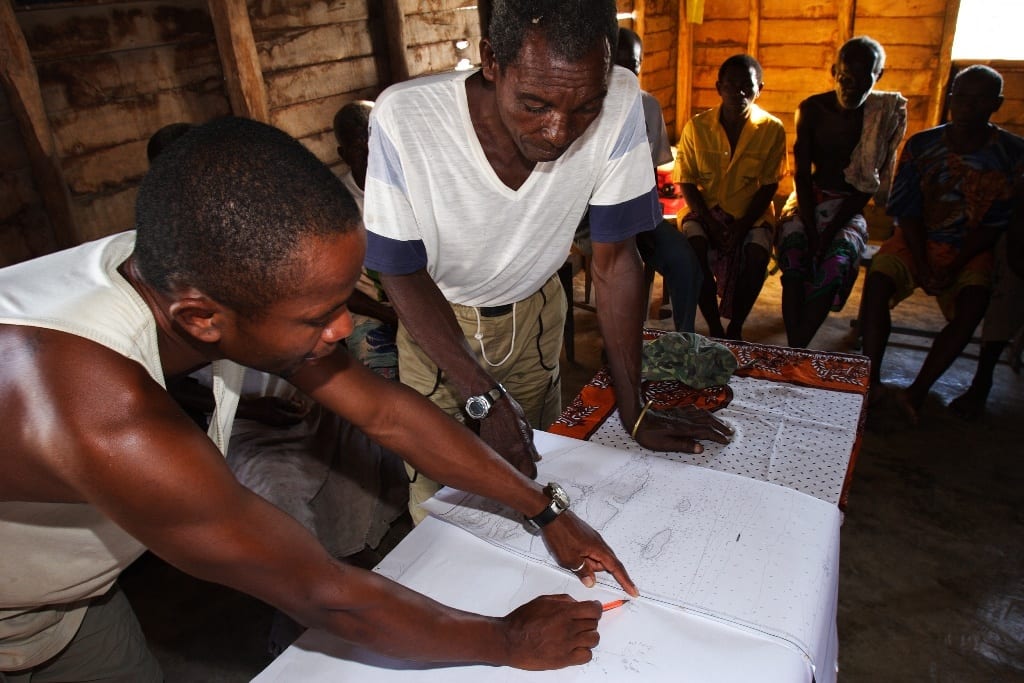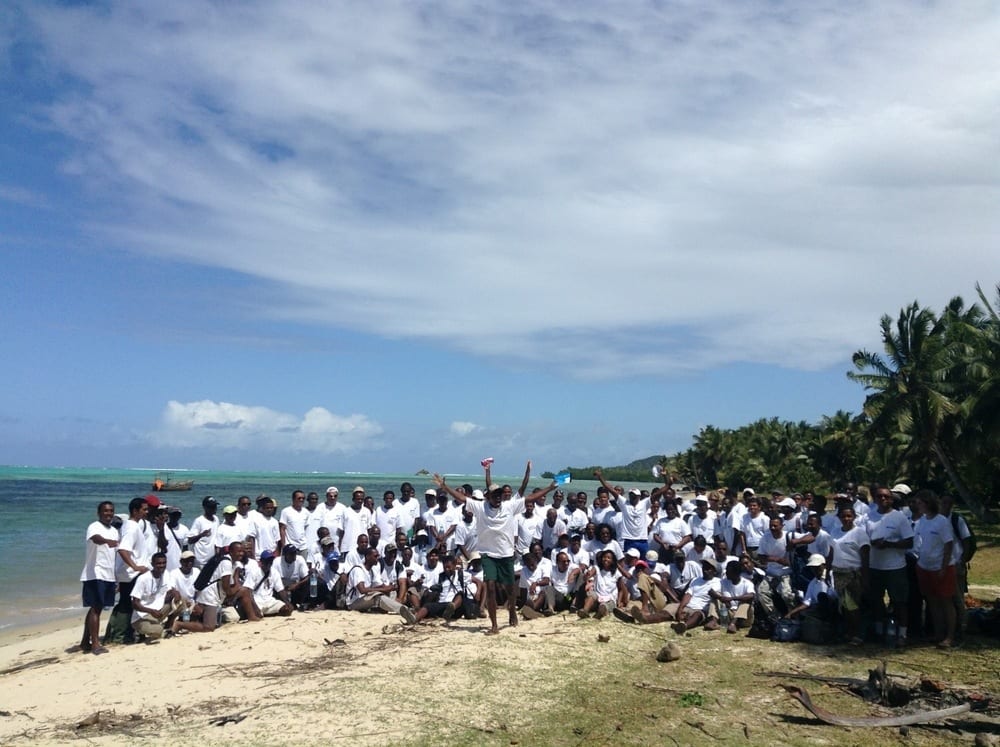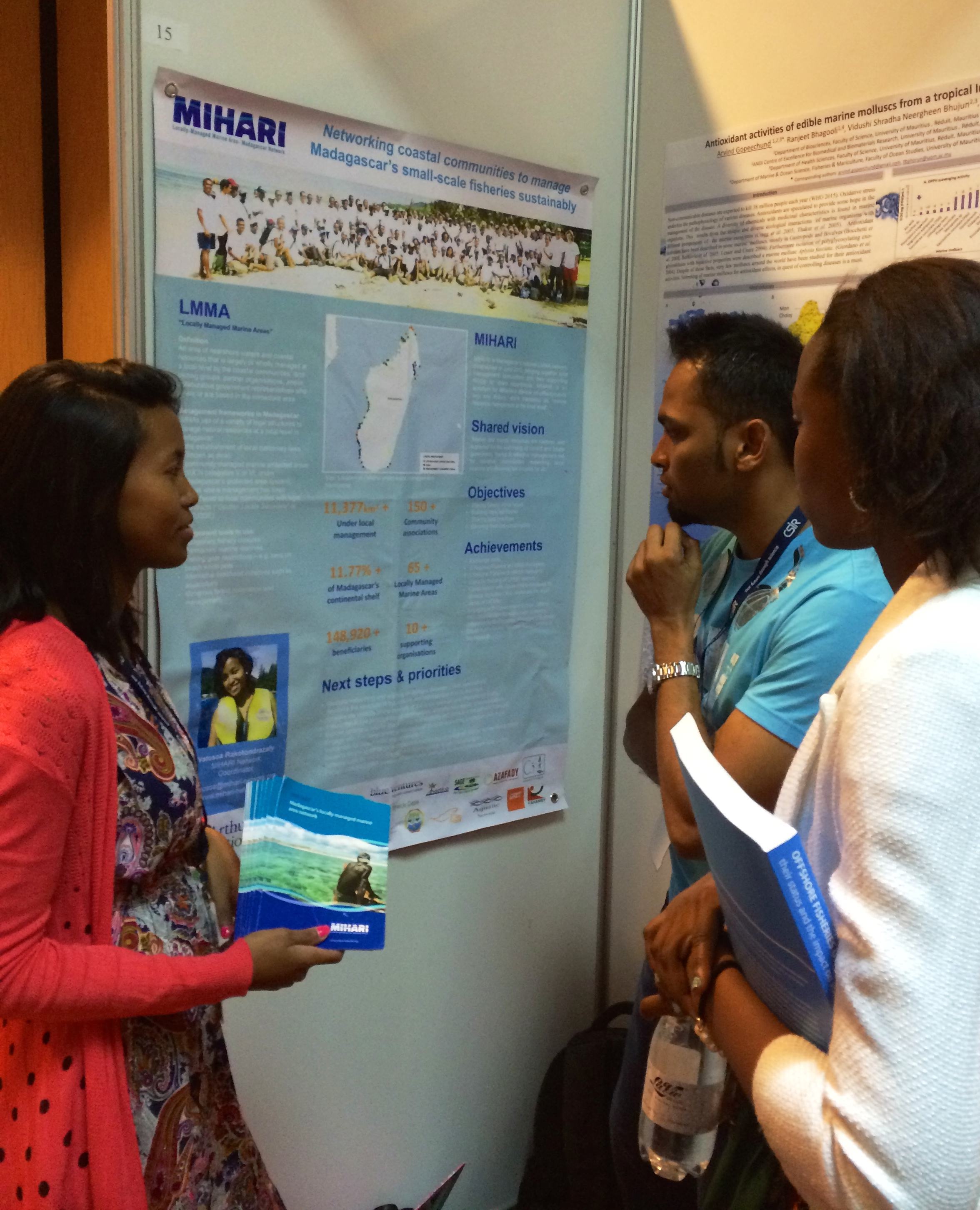Madagascar’s Minister of Fisheries, Augustin Andriamananoro, has pledged his support for the establishment of an exclusive fishing zone for small-scale fishers.
The implementation of an exclusive fishing zone for Madagascar’s small-scale fishers was the subject of a meeting between the recently appointed Minister and staff from the MIHARI Network and Blue Ventures. The British Ambassador Mr Phil Boyle and a representative from the German Embassy were also in attendance.
The meeting at the Ministry of Fisheries and Marine Resources in Antananarivo on 19th July 2018 began with a speech from Mr Hermany Emoantra, the National President of MIHARI. Speaking on behalf of Madagascar’s small-scale fishing communities, Mr Emoantra described the many challenges they face and emphasised the need for a legally protected coastal strip free from competition with industrial vessels: “It would finally enable us to live in harmony with industrial fishers, put a brake on the degradation of Madagascar’s marine habitats and allow better management of marine resources.”
The MIHARI President’s demand for exclusive fishing zones is not new. In July 2017, 173 small-scale fishers representing their communities from across Madagascar’s coastline gathered at the groundbreaking MIHARI national forum in Fort-Dauphin and adopted a formal motion to the Government requesting the establishment of such a zone.
Now, almost one year on, the Minister of Fisheries has responded to Mr Emoantra’s renewed plea by pledging to support the drafting of two decrees over the coming weeks, one for the implementation of the exclusive fishing zone, and the second for the creation of a steering committee to drive the process forward. In a statement to MIHARI, the Minister said: “This bill will achieve better and more equitable and efficient regulation of fishing areas, on a social, economic and environmental level.”
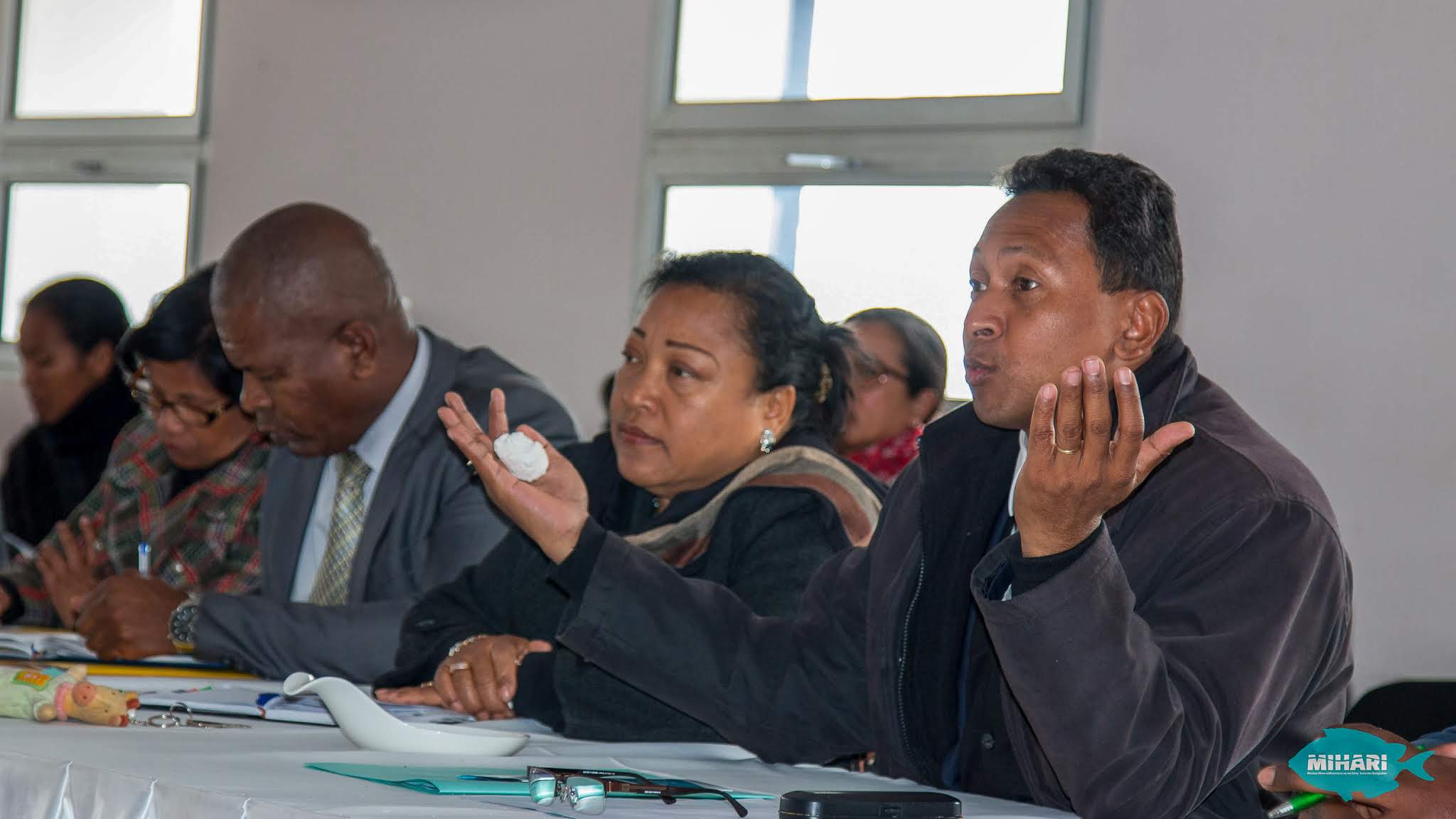
The Minister is committed to developing the equitable management of marine resources that provides space for everyone and ensures that all fishers respect the conditions of the agreement and perform their duties. He strongly endorsed the formation of an honest and open dialogue between the small-scale and industrial fishing sectors, to improve understanding about their challenges, experiences and practices.
Small-scale fishers account for 72% of Madagascar’s fisheries seafood production, yet lack exclusive rights to the inshore fishing grounds on which they depend for their livelihoods and food security. Currently they must share these fishing grounds with industrial trawlers. Research from southwest Madagascar − home to the country’s largest fishing population − has shown that seafood is the sole source of dietary protein in up to 99% of household meals.
Many of these communities live in severe poverty, and are extremely vulnerable to climate change and the destructive environmental impacts of industrial fishing operations, particularly bottom trawl fisheries. Since 2012 these communities have been supported by MIHARI, the national network of locally managed marine areas. Vatosoa Rakotondrazafy, MIHARI’s National Coordinator, said: “The Minister’s statement is the most exciting news for small-scale fishers we’ve heard this year. It is an important step in our mission to ensure a better future for Madagascar’s fishing communities.”
Galvanised by the Minister’s vision, the National President of MIHARI and the rest of the team will now make every effort to facilitate the creation of the exclusive fishing zone in coming weeks. In this, the International Year of the Reef, we will work closely with the Government to make Madagascar a world leader in the good management of inshore fisheries for the benefit of small-scale fishers and precious coral reef biodiversity.
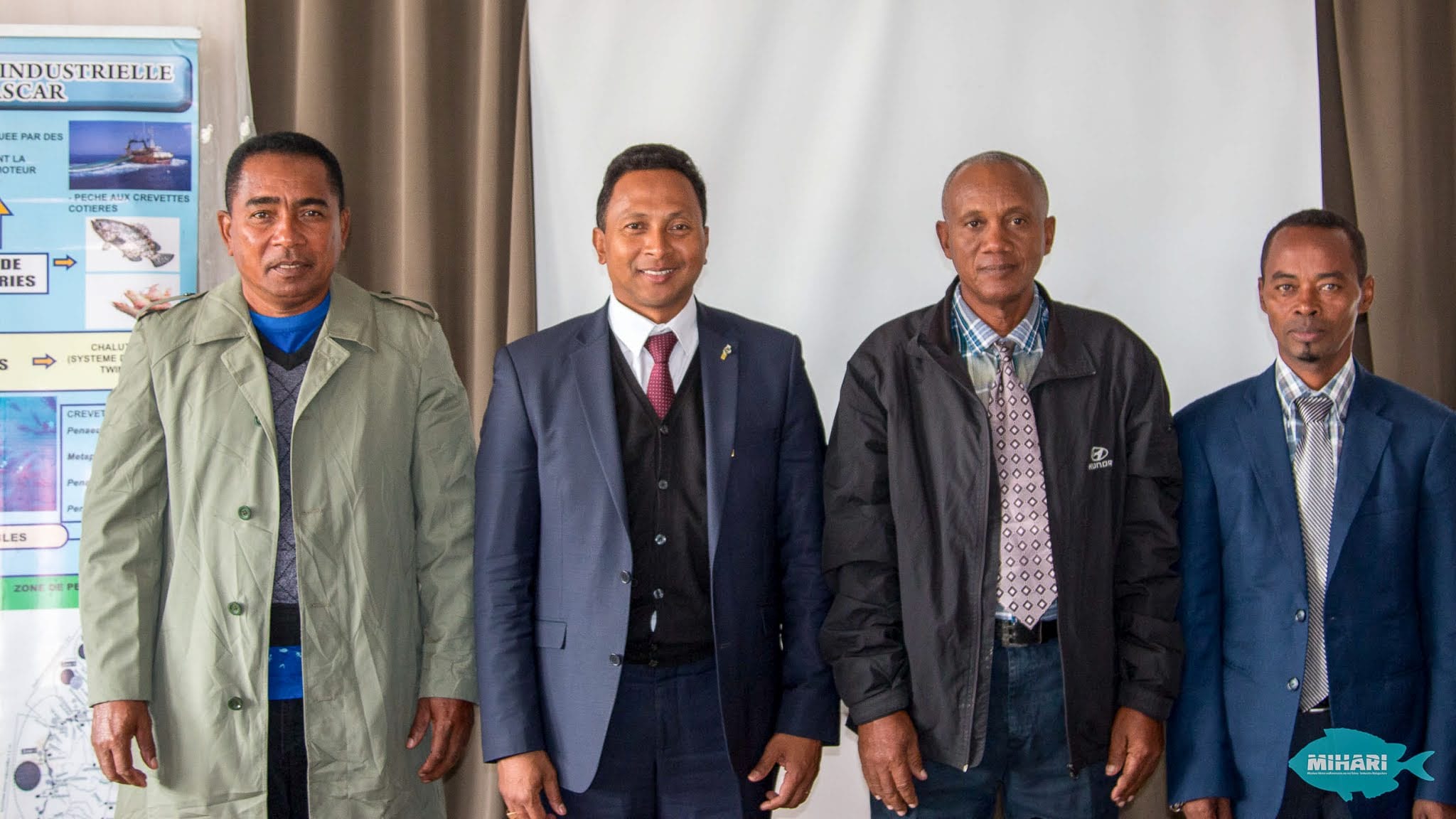
The Minister Augustin Andriamananoro with the MIHARI national board members
Watch our video: An exclusive fishing zone for the small-scale fishers of Madagascar (also available in French and Malagasy)

